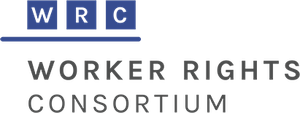5 Lessons Sparked by the Open Data Institute Peer Learning Network
Open Supply Hub is one of seven participants in the Open Data Institute’s (ODI’s) data for workers' rights peer learning network, in partnership with Humanity United. The recent gathering of participants in Bangkok proved to be a rich source of insights and collaborative opportunities for all seven organizations, all of which are committed to leveraging data for workers' rights. We were immersed in a series of engaging discussions, workshops, and one-on-one meetings with our peers, understanding new perspectives and strategies to drive positive change for workers in global supply chains.
From roundtables focused on engaging directly with workers, to workshops centered around data ecosystem mapping, each session provided valuable insights and actionable takeaways.
These conversations sparked critical questions and reflections for OS Hub to carry forward, as we work to make open supply chain data a force for good. While there were many, here are our top five:
1. Collaborative Networks for Worker Empowerment are Critical
It may seem obvious at this point, but it’s a lesson we can never learn enough. No one organization, institution or community holds a complete set of knowledge or tools to advance workers’ rights in global supply chains. Just like the cotton, thread, and buttons needed to make a shirt, don’t all come from the same place, nor can the solutions to supply chain’s problems. It is imperative to build alliances across sectors and geographies to amplify the impact of advocacy efforts, learn best practices from one another, and understand both what is universal and what is specific to certain communities. As we work to build datasets to support workers, this will always be done in concert with other organizations who hold valuable knowledge and perspectives to ensure impact and mitigate harm.
2. Communication Strategies Must be Worker-Centered
So many platforms and datasets are built and disseminated by people outside of the communities they will be serving. A critical element that is often missed in these efforts is to ensure that the communications and resources around those tools are designed to truly be utilized by their intended audience. There are organizations who have been accompanying workers and worker-centered communities for some time and have best practices to share. Today, that often means using short videos, live online Q&A sessions or social media platforms like Facebook to meet communities where they are.
3. Collectively Built Data & Taxonomy Standardization are Desperately Needed Building Blocks
While it may seem a few steps removed from supporting workers, having clean and standardized data models to build from can make a huge difference in the impact that supply chain data can make at scale. And, not to sound like a broken record, but creating models and taxonomies for standardization cannot be done in siloes. Building them collectively will lead to more comprehensive models, reduced duplication of effort, and greater adoption in the long run.
4. Data Ethics Underpin the Transparency & Open Data Equation
Open data (or fully open data) isn’t always the answer when people’s lives and livelihoods are on the line. While data sharing has great benefits, this cannot be adopted for every data point and dataset without considering critical issues like privacy, ownership, safety and more. Exploring frameworks for data ethics and policies to mitigate harm are crucial in addressing these challenges responsibly.
5. There’s No Need to Suffer in Silence
As organizations with similar or shared missions, we are often facing shared challenges in how we operate: from securing funding, to navigating data valuation & monetization, and more. This convening was a chance to remember that if we’re struggling, our peers probably are, too. We talk a lot about enabling collaboration and helping organizations work more efficiently if they share lessons and resources, and it was good to be reminded to do this ourselves.
As we continue our journey with renewed insights and collaborative momentum, we remain dedicated to our mission of making supply chain data open, accessible and trusted for public benefit - and these five lessons are critical for us to adopt if we’re to be successful. We’re so pleased to be on this journey with our fellow peer-learning network peers: Blue Number, CNV Internationaal, International Transport Workers’ Association, Issara Institute, Trade Union Rights Center and Wikirate.
Are you diving into any of the areas above and want to share reflections or collaborate? We’d love to keep the conversations going, even after this convening has ended!
